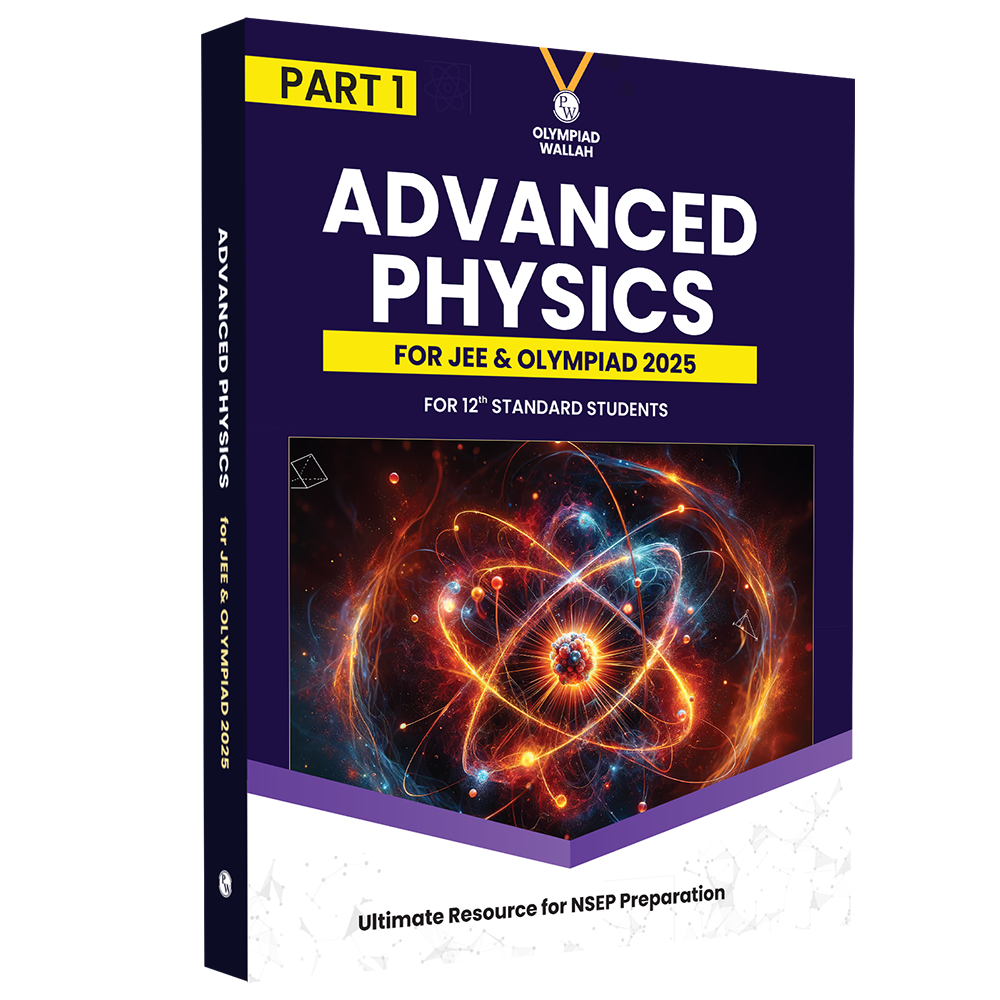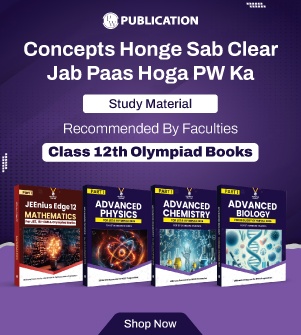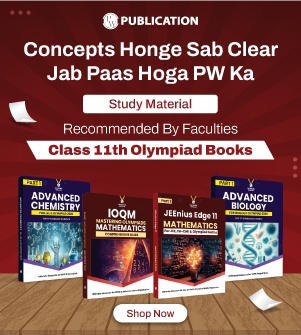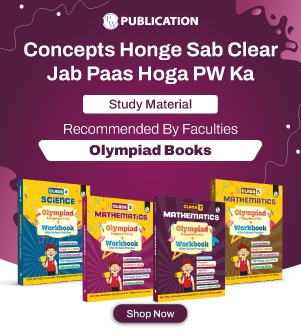NSEP Syllabus 2025 for Class 11 and 12 Physics Exam

Preparing for the National Standard Examination in Physics (NSEP) can feel like a big task. But with a clear view of the NESP syllabus, you can plan your study and boost your confidence. The NSEP syllabus is built on the NCERT Physics chapters for Class 11 and 12. This means that if you know your Olympiad books well, the syllabus for NSEP won’t throw any surprises. By following this guide, you will learn what to study, how much weight each topic carries, and how to use your time wisely. You will also find tips to get free study materials that match the NESP physics syllabus exactly.
Details About NSEP
The National Standard Examination in Physics, or NSEP, is a special physics test that has been running since 1987. It's organized by the Indian Association of Physics Teachers (IAPT). This exam helps select students who can represent India in international physics competitions.
Over 200,000 students from about 1,500 centers take this exam each year. The NSEP is the first step toward participating in the International Physics Olympiad. For students who love physics, the NSEP syllabus offers a great chance to test their skills.
Who Can Give the NSEP 2025?
Before you start preparing for the NSEP syllabus class 11 and 12, check if you meet these rules:
-
You must be able to hold an Indian passport
-
You must be born between July 1, 2006, and June 30, 2011
-
You must have been living and studying in India since November 30, 2022
-
You must not have completed Class 12 board exams before November 30, 2025
-
You must not have started university studies before June 1, 2025
-
You must not be taking the NSEJS 2025 exam
NSEP Exam Pattern 2025
The NSEP exam has two parts:
-
Part 1: 48 multiple-choice questions with one correct answer
-
Part 2: 12 multiple-choice questions with one or more correct answers
-
Total marks: 216
-
Marking: +3 for correct answers, -1 for wrong answers
-
Time: 2 hours
The exam is available in English, Hindi, and several other Indian languages.
Check Out: IOQM Olympiads Mathematics Comprehensive Guide For 2025 Exams
NSEP Syllabus 2025 for Class 11 and 12
The syllabus for nsep covers all physics topics from Class 11 and 12. Here's what you need to know about the nsep physics syllabus:
Key Chapters and Topics in NSEP Syllabus
-
Geometrical Optics (39 marks)
-
Lens and refraction
-
Prism and spherical mirrors
-
Total internal reflection
-
Current Electricity (21 marks)
-
Power and energy
-
EMF and terminal voltage
-
Kirchhoff's laws
-
Electromagnetic Field (21 marks)
-
Magnetic fields due to magnets and wires
-
Magnetic force and torque
-
Dipole moment
-
Alternating Current (12 marks)
-
Power in AC circuits
-
Resonance
-
Electrostatics (12 marks)
-
Coulomb's law
-
Electric potential
-
Gauss's law
-
Centre of Mass and Collisions (12 marks)
-
Head-on collisions
-
Motion of center of mass
-
Work, Power, and Energy (12 marks)
-
Work done by variable forces
-
Work-energy theorem
-
Semiconductor (12 marks)
-
Diodes
-
Transistors
-
Logic gates
-
Circular Motion (9 marks)
-
Kinematics of circular motion
-
Vertical circular motion
-
Simple Harmonic Motion (9 marks)
-
SHM equations
-
Spring-mass systems
-
Thermodynamics (9 marks)
-
First law
-
Root mean square velocity
-
Heat Transfer (9 marks)
-
Thermal conduction
-
Modern Physics (9 marks)
-
Electronic transitions
-
Photoelectric effect
-
X-rays
Other important topics with lower mark weightage include:
-
Newton's Laws of Motion
-
Fluid Mechanics
-
Rectilinear Motion
-
Sound Waves and Doppler Effect
-
Gravitation
-
Rotation and Moment of Inertia
-
Wave Optics
-
Surface Tension
How to Prepare Using the NSEP Syllabus 2025
Now that you know the NSEP syllabus weightage, here's how to prepare effectively:
Step 1: Study the Syllabus
Look at all the topics in the NSEP syllabus and mark the ones you know well and the ones you need to work on. Don't skip any topic, as each one is important.
Step 2: Create a Study Plan
Make a schedule that gives you enough time to cover all topics. Start at least one month before the exam date.
Step 3: Use the Right Books
The NCERT Physics books for Class 11 and 12 should be your first study materials. They cover all the basics you need for the NSEP physics syllabus. Also, use NSEP Class 11 Advanced Physics for JEE & Olympiad 2025. It builds a strong foundation of key concepts for JEE and Olympiad exams.
Step 4: Practice Previous Papers
Solve NSEP question papers from past years to understand the types of questions asked and to practice time management.
Step 5: Use Good Reference Books
After mastering the NCERT books, move on to more advanced physics books to deepen your understanding of the NSEP syllabus class 11 and 12 topics.
Benefits of Taking the NSEP Exam
-
Gold Medals: Top 35 candidates receive gold medals
-
Direct Interview: Gold medalists can skip the written tests for the Atomic Energy Department
-
Scholarships: Up to 10 scholarships for students pursuing a B.Sc. in Physics
-
Merit Certificates: The Top 1% of students get special merit certificates
Stages After NSEP 2025
If you do well in the NSEP, you can move on to:
-
Indian National Physics Olympiad (INPhO)
-
Orientation cum Selection Camp (OCSC)
-
Pre-departure Training Camp (PDT)
-
International Physics Olympiad (IPhO)
Read More: How to Prepare for NSEP Exam 2025?
NSEP Syllabus FAQs
1. Which books cover the NSEP syllabus?
The NSEP syllabus is fully based on the NCERT Physics for Classes 11 and 12 and Olympiad Wallah NSEP Class 11 Advanced Physics for JEE & Olympiad 2025. Read both textbooks thoroughly before any other guide.
2. What is the weightage of different topics?
High weight: Optics, Electromagnetic Induction, Current Electricity. Medium: Mechanics, Thermodynamics, Modern Physics. Low: Fluids, Gravitation, Electronics.
3. Is there negative marking?
Yes. In Part A1, –1 mark for each wrong answer. Part A2 typically has no partial marks; wrong answers score zero or negative as per instructions.
4. What if I miss a low‑weightage topic?
Try not to skip any topic. Even low‑weight chapters like surface tension or gravitation can yield easy marks if you know the basics.











